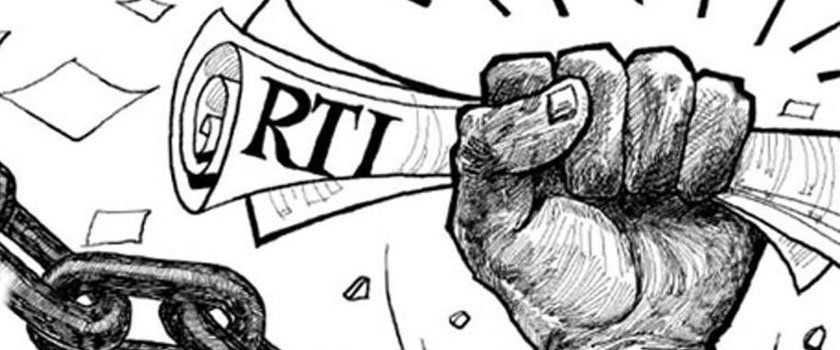Vinita Deshmukh
08 June 2020

In what can be termed as a major victory for the Right to Information (RTI) activists’ campaign through a series of conferences through Zoom, the Maharashtra state information commission (MSIC), which had gone into hibernation during this lock-down, has finally agreed to conduct second appeal hearings, online, from 15 June 2020.
A legal notice sent by the activists to the MSIC proved to be the final trigger that woke up the MSIC to that online technology is the order of the day and it needs to change its gear in that direction and not remain in a locked-down state. While the judiciary was ably using online hearings during the lock-down, the MSIC had strangely not even considered technology to compensate for the ban on physical visits to its office for second appeal hearings. So deaf was it that even a string of letters by RTI activists across the state to urge it to start online hearings, could not spur it into action.
Finally, a group of RTI activists, across the country, sent a legal notice last week to the MSIC, because of which the commissioner Sumit Mullick has agreed to conduct second hearings online, from the 15th June. The appellants and other related persons would be informed about the date and time of the second appeal hearing by email. For those RTI appellants who do not have the convenience of an online system, the hearing would be pre-arranged by the MSIC at a predetermined time at the district collector’s office.
As per the state government circular of 4th June, 10 staffers would be working for the MSIC from 8th June. Besides following all the safety norms for the employees who come to the office, the MSIC has strictly decided to conduct second appeal hearings, only online, to protect the health of the appellants, public information officers (PIOs) and First Appellate Authorities (FAAs). Since several of the PIOs and FAAs are engaged as ‘Covid Warriors’ and therefore would not be able to be present at second appeal hearings, only those that do not involve such public authorities which have PIOs and FAAs on emergency duty would be held.
The legal notice sent last week by RTI activists Shailesh Gandhi, Vijay Kumbhar, Vinita Deshmukh, Vivek Velankar, Bhaskar Prabhu and Mohammed Afzal was a result of the online RTI Katta meetings held on the 7th, 14th and 21 May 2020. A large number of citizens had participated including the former Central information commissioner Shailesh Gandhi, former information commissioner of Maharashtra state, Vilas Patil, former principal secretary of Maharashtra general administration department, Mahesh Zagade, former director of RTI cell, Yashada Pralhad Kachare, Lokesh Batra, a Delhi-based RTI activist, Subhash Agarwal, and a Delhi based advocate Divya Jyoti Jayapuriar.
The RTI Katta, founded by Mr Kumbhar used to be otherwise held at a public garden in Pune but due to the lock-down is now operating through Zoom that enables activists across the country to participate. Concerned over the large number of RTI second appeals/complaints pending before the MSIC, the activists in their legal notice brought to the attention of the MSIC that: Access to information is a facet of the right to freedom of speech and expression as contained in Article 19(1)(a) and as such it is a fundamental right of the citizens under the Constitution of India. The challenges occasioned by the outbreak of COVID-19 need to be addressed by preserving the Constitutional commitment of ensuring the citizens’ fundamental right to access information.
Faced with the unprecedented and extraordinary outbreak of a pandemic the Chief Justice of India, judges of Bombay High Court and Delhi High Court have risen to the occasion and adopted the use of VC platforms such as Zoom etc. The SCIC can facilitate earliest conduct of all hearings through video conferring and come out as a role model in compliance of the directions of the Supreme Court.
The SCIC must give appropriate directives of online hearing to its eight information commissions located at Mumbai, BrihanMumbai, Amravati, Aurangabad, Konkan, Nashik, Nagpur, and Pune as per the provision of Section 15(4) of the RTI Act, 2005. That Indian courts have been proactive in embracing advancement in technology in judicial proceedings.
The Indian judiciary has incorporated information and communication technology (ICT) systems through the e-courts integrated mission mode project (e-courts project) as part of the national e-governance plan (NeGP). The robust infrastructure in place has reduced conventional impediments and legal uncertainty surrounding the use of virtual courts. ICT enabled infrastructure is available across all courts including the district judiciary which constitutes the initial interface of the court system with the citizen. So why not the information commissions? The Central information commission has been successfully conducting online RTI hearing proceedings through online video conferencing, for over a decade. Recently in the wake of Covid19 the Manipur state information commission has resumed conducting of its hearing proceedings over WhatsApp video as part of its social distancing initiative and to avoid further spread of the coronavirus.
Interestingly, in the meanwhile the Amravati Bench of the MSIC has been conducting its hearing proceedings through online video conferencing platforms.
Therefore, the activists argued in their letter that, apart from the efforts made by the Amravati Bench of the information commission, an administrative direction needs to come from the office of the chief state information commission, Mumbai, with respect to all the eight benches of the MSIC.

Leave a Reply